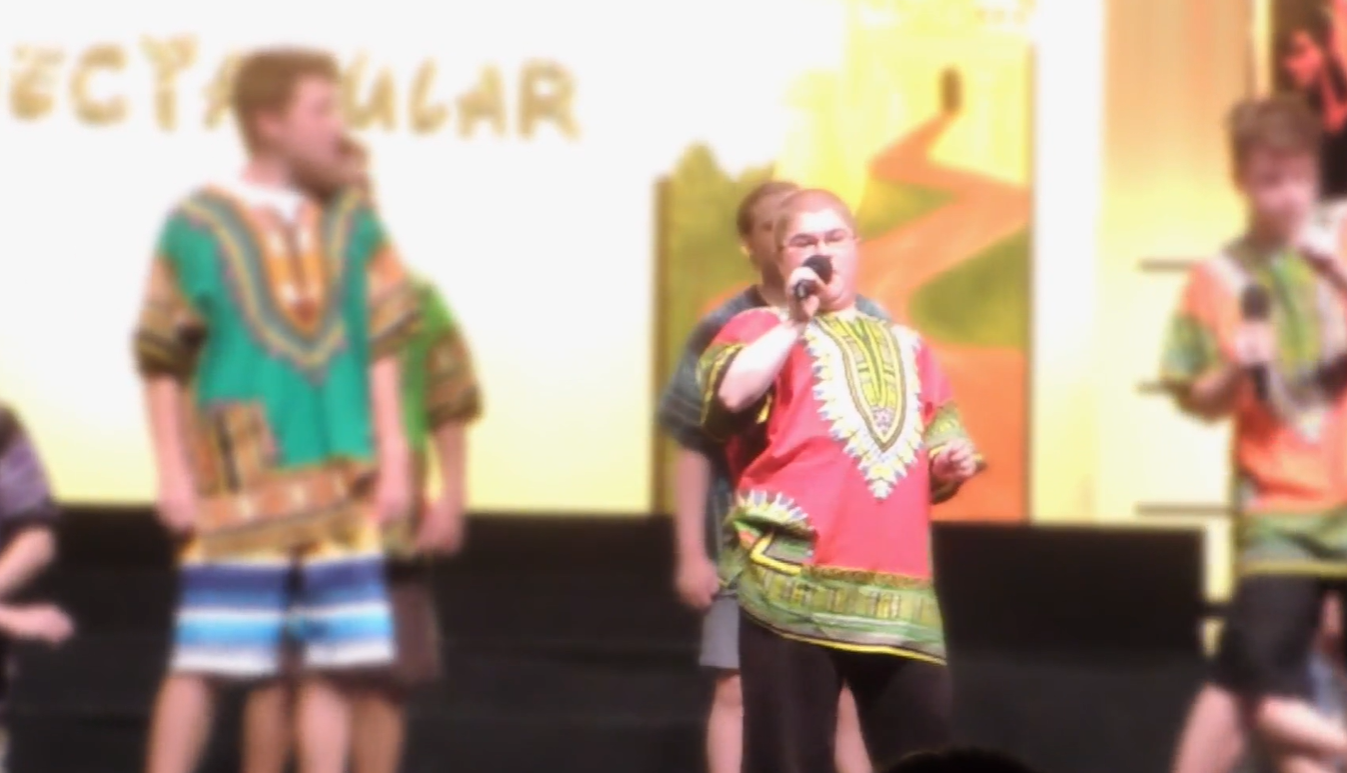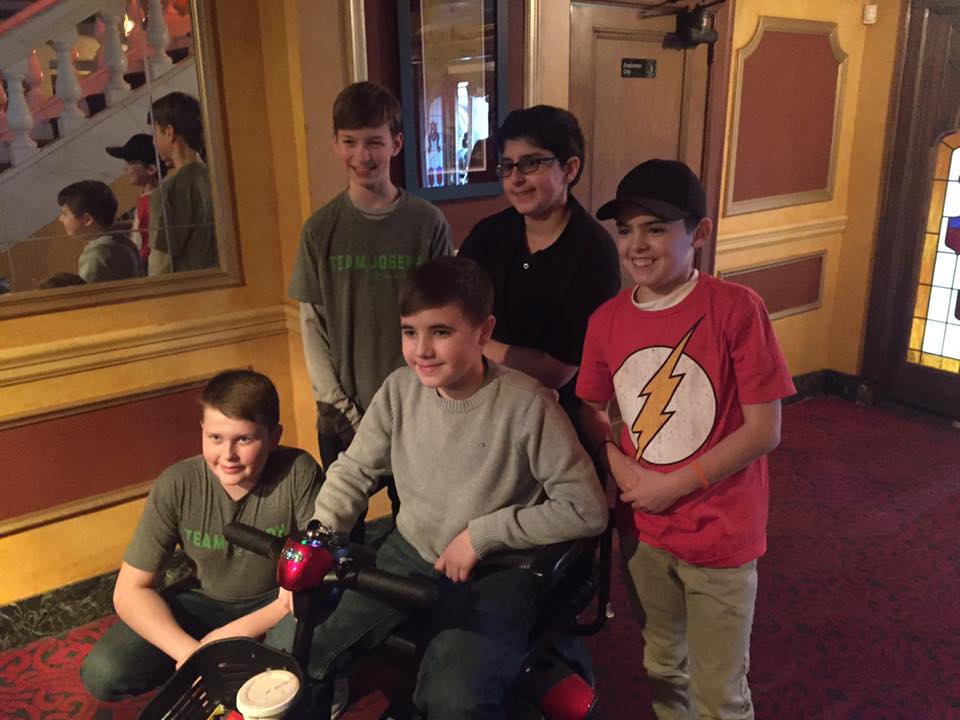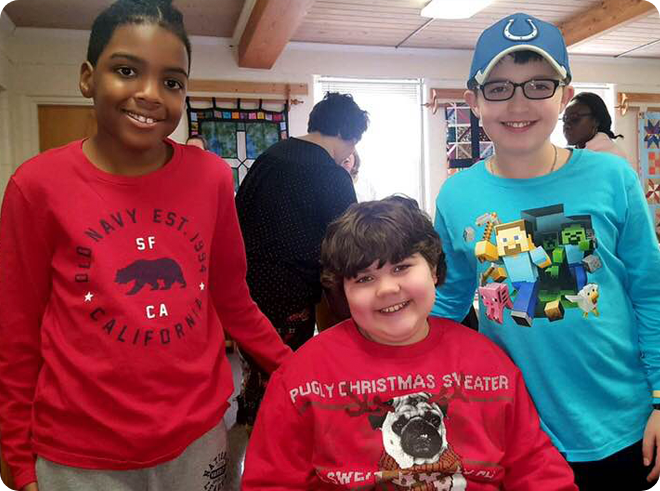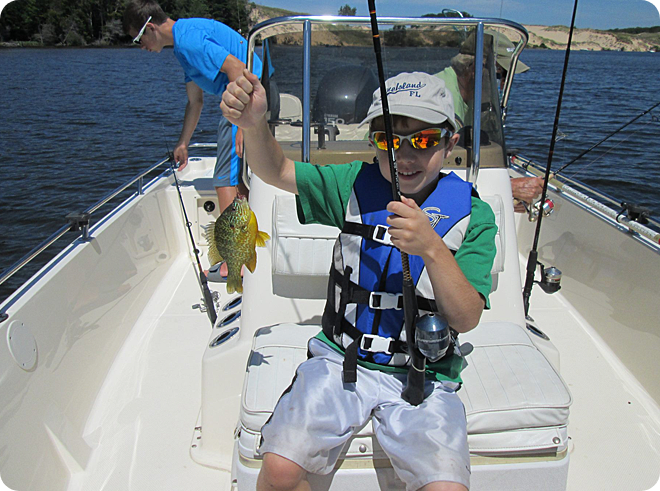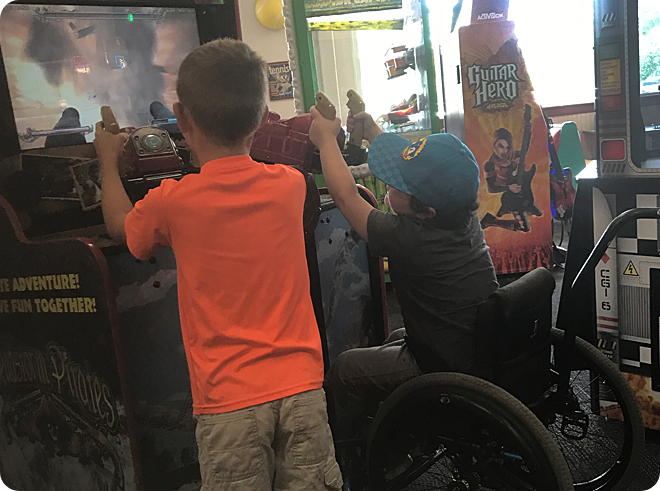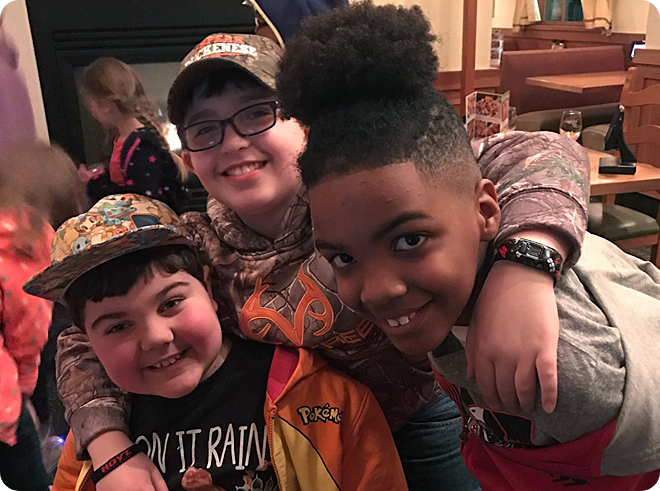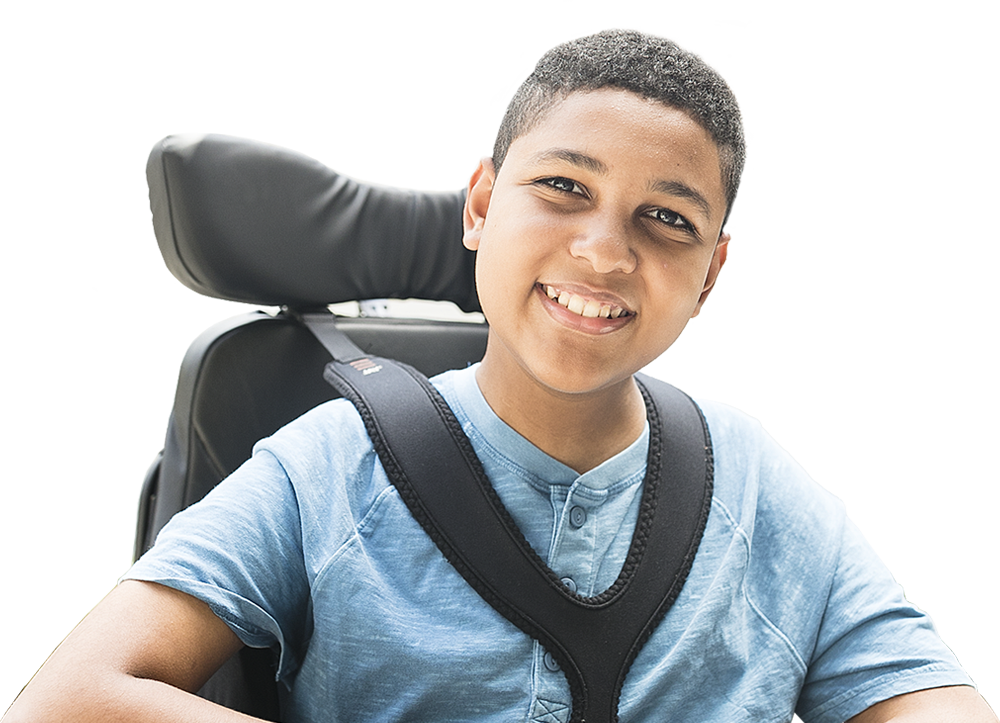
CALEB, living with Duchenne
Making Friends and Being Social
Children with Duchenne often struggle with physical limitations and fatigue, cognitive deficits, as well as anxiety and depression that could make it more difficult to socialize with others. For example, muscle weakness and fatigue may make it difficult to keep up with other children during sports and games.
Cognitive problems, such as language difficulties, ADHD, and social judgment challenges, also complicate social interactions. However, social skills training and participating in summer camps and social activities for people with Duchenne may help to overcome these barriers to social interactions.
Building Social Skills
Some individuals with Duchenne may benefit from formal training in social skills, with a goal of acquiring and practicing the behaviors required for making friends and having positive interactions with peers and others. This might include training on how to join an unfamiliar group appropriately, how to respond to teasing or bullying, and how to start a conversation.
Seeking Out Social Interactions
Opportunities for participation in social interactions should be encouraged and facilitated whenever possible. These may include modified or adapted sports, clubs, summer camps, youth programs, music or art projects, use of service animals, nature programs, and appropriate on-line activities.
Assisting a child with Duchenne to socialize can sometimes be facilitated by educating peer groups to encourage them to be more inclusive and accepting of a child with Duchenne. Coordination with a child’s teacher or school counsellors can be helpful in this respect.
Attending Summer Camp
Specifically, organized summer camp can provide children and teenagers with Duchenne a wonderful opportunity to grow, have fun, and meet others who face similar challenges. Camp is often the first and only time they find themselves in the mainstream—surrounded by others who may face the same challenges they do.
In many respects, summer camps for kids with Duchenne accomplish the same things other summer camps do—allowing kids to be themselves, engage in plenty of fun camp activities, make lifelong friends, and learn valuable skills that will contribute to their independence. Many camps are free. All in all, summer camps for kids with Duchenne benefit children and parents alike and offer a welcome break from their everyday routines.
Gaming
Gaming is a popular activity among people with Duchenne, and a good way to make friends with people in the Duchenne community and beyond. AbleGamers is an organization that provides modified controllers and special assistive devices for gaming.
Fostering Personal Relationships
Nurturing social relationships is a crucial part of a healthy, productive, and happy life for anyone, regardless of their level of ability. For someone with Duchenne, finding or creating opportunities for personal and social relationships may require a little effort. Many social groups exist for teens and adults with Duchenne, and the advocacy groups listed in the Community Resources section of this website may be able to help you connect with a group near you.
Dating, intimacy, and sexuality are high-priority topics among all teens and young adults, with and without Duchenne. At-home discussions regarding relationships, dating, and marriage should be encouraged, along with conversations about troubleshooting barriers to developing social relationships and participating in social events.
Connecting with other people living with Duchenne, as well as their families, is a good way to socialize more and establish friendships.
